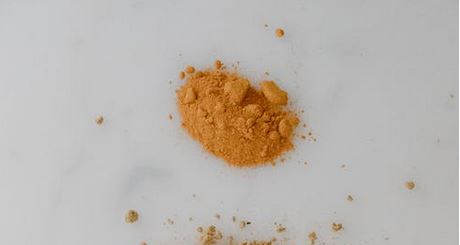Curcumin alleviates the progression of chronic kidney disease
Turmeric is a superfood with numerous health benefits, many of which are attributed to curcumin, its main active ingredient. In fact, one study discovered that taking curcumin supplements increases the levels of beneficial gut microbes that limit the actions of toxins.
Curcumin may also help alleviate the symptoms of chronic kidney disease (CKD), according to the findings.
According to the research, curcumin stimulates the production of proteolytic enzymes that play a role in the metabolism of the uremic toxins indoxyl sulphate (IS) and p-cresyl sulphate (PCS), both of which contribute to the progression of kidney disease.
"Normally, as renal damage worsens, uremic toxin levels rise, but this was not observed after supplementation," the researchers explained.
It is frequently the subject of research as scientists investigate the potential applications for treating inflammatory diseases such as arthritis and ulcerative colitis.
Chronic kidney disease and inflammation
Chronic kidney disease affects an estimated 13.4% of the global population. CKD is also a major risk factor for the development of cardiovascular disease
A growing body of research is shedding light on the role of gut microbiota in certain homeostatic functions, as well as the "metabolic burden" of gut microbiota dysbiosis caused by CKD. This burden includes the overproduction of uremic toxins and inflammation-inducing cytokines, both of which have been linked to negative consequences.
According to the findings, the majority of people with CKD have "a persistent state of low-grade chronic inflammation."
This "inflammaging," or inflammation-mediated ageing, is emerging as a key ageing patho-mechanism. This suggests that it can be managed to reduce disease burden in elderly patients.
Probiotics, prebiotics, and nutraceuticals, for example, can help modify clinical outcomes "directly or indirectly mediated by changes in the inflammatory and oxidative status."
Curcumin has anti-inflammatory properties that help lower plasma cytokines, according to in-vitro studies. The researchers wanted to learn about the effects of oral supplementation on gut microbiota and how they interact with nutritional, inflammatory, and oxidative statuses.
Curcumin supplementation and microbial diversity in the gut
The research team worked with 24 male and female elderly volunteers with chronic kidney disease for the study. For the six-month trial, they also worked with a control group of 20 male and female volunteers without CKD of similar age.
Meriva food-grade lecithin curcumin tablets (500 mg) were given twice daily to patients with chronic kidney disease. The tablets contained 100 mg of highly bioavailable curcuminoids in a standardised amount.
To track the volunteers' food consumption, the researchers used a three-day food diary. At three and six months, clinical parameters, anthropometric and body composition measurements, dietary habits, and stool and blood samples were collected.
After three months, there was a significant decrease in fat mass percentage and a positive increasing trend in fat-free mass (FFM) percentage in the chronic kidney disease group.
Meriva consumption also promoted a shift in gut microbial diversity toward a "health subject community," as evidenced by an increase in the relative abundance of three protective bacterial species:
Lactobacillaceae levels increased significantly after six months compared to three months.
From baseline to six months, Prevotellaceae increased gradually.
Lachnospira was steadily increasing overall.
There was also a decrease in phosphorus and potassium intake, both of which are indicators of poor kidney function. Supplementation also reduced plasma levels of pro-inflammatory cytokines and lipid peroxidation. This is significant because excessive lipid peroxidation has been linked to cell damage.
In CKD patients, the findings revealed an average 18% decrease after three months and a 25% decrease after six months. When compared to volunteers in the control group, the levels were significantly lower.
Total daily calories, total carbohydrates, and total protein intake all decreased in the curcumin group from baseline to three and six months. The researchers believe that the findings support the findings of previous studies on the benefits of curcumin consumption.
Comments
There are 0 comments on this post













